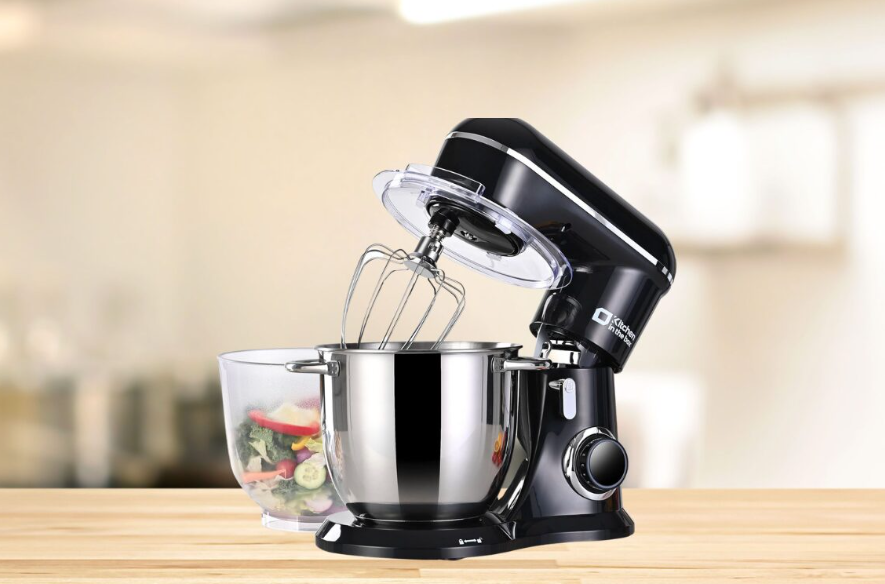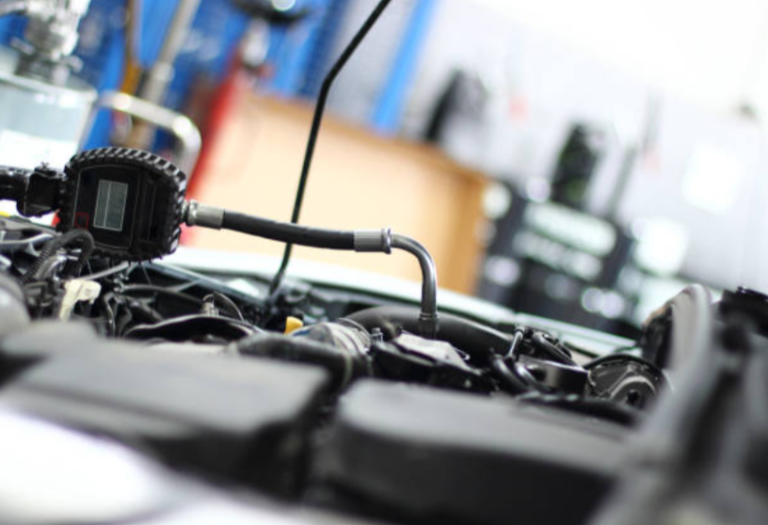Stand Mixer Size: Choosing the Right Capacity for Kitchen Efficiency
In any modern kitchen—whether it’s a professional bakery, a bustling restaurant, or a home kitchen for passionate foodies—stand mixers have become indispensable tools. Their ability to streamline the mixing process, reduce manual effort, and ensure consistency has made them essential for efficient and high-quality food preparation.
However, not all stand mixers are linkhouse created equal, especially when it comes to stand mixer size. Choosing the wrong capacity can lead to inefficiency, waste, or underperformance. This guide will help you understand why stand mixer size matters, how to choose the right one for your culinary needs, and how innovation in food machinery, as seen on platforms like mirabake.com, is transforming kitchen operations globally.
1. Understanding the Role of a Stand Mixer
A stand mixer is an electric kitchen appliance used for mixing, whipping, kneading, and combining ingredients. Unlike handheld mixers, stand mixers provide:
Hands-free operation
More consistent mixing
Powerful motor capability
The ability to mix large batches
Compatibility with attachments like dough hooks, whisks, and paddles
Whether you’re making cookies at home or bread dough in a bakery, the right stand mixer size can dramatically influence your productivity and results.
2. Why Stand Mixer Size Matters
The capacity of your stand mixer isn’t just about how much batter or dough you can fit into the bowl. It also affects:
Mixing consistency
Motor stress and longevity
Time and energy efficiency
Batch scalability
Ingredient incorporation
Choosing the proper stand mixer size ensures your linkhouse kitchen runs smoothly, whether you’re preparing small batches or industrial quantities.
3. Standard Stand Mixer Sizes: Explained
Stand mixers generally come in three main categories:
| Mixer Size | Capacity (Liters) | Ideal For |
| Small | 3 – 5 L | Home kitchens, hobbyists |
| Medium | 5 – 10 L | Small bakeries, cafés |
| Large | 10 – 30+ L | Commercial kitchens, food factories |
Each size has its own advantages and limitations depending on the volume, frequency, and type of mixing you do.
4. Home Use vs. Commercial Use
Home kitchens typically favor mixers in the 3-7 liter range, ideal for:
Daily cooking and baking
Cakes, muffins, and light dough
Small bread batches
Commercial settings, on the other hand, require larger stand mixer sizes—often 10 liters and beyond—for:
High-volume baking
Industrial dough kneading
Consistency over multiple batches
For both categories, mirabake.com offers versatile mixer options tailored to usage scale and output needs.
5. Factors to Consider When Choosing a Stand Mixer Size
Choosing the correct stand mixer size isn’t just about the number on the bowl. Consider these key factors:
Type of recipes (wet batters vs. heavy doughs)
Batch size frequency
Motor wattage and torque
Available kitchen space
Ease of cleaning and maintenance
Budget constraints
Mixer bowl design and attachment compatibility
Mirabake provides a wide selection of mixers that balance size, power, and performance—making it easier to meet your exact requirements.
See also: How Startups Use Tech to Disrupt Industries
6. Small Stand Mixers: 3 to 5 Liters
Ideal For:
Home bakers and beginners
Light batters (pancakes, cupcakes, meringues)
Kitchens with limited counter space
Pros:
Compact and affordable
Easy to store and clean
Great for occasional use
Cons:
Limited capacity for dough
Struggles with large or stiff batches
If you’re just starting out or bake for fun, this size is both sufficient and practical.
7. Medium Stand Mixers: 5 to 10 Liters
Ideal For:
Small bakeries
Restaurants and cafés
Households that bake regularly
Pros:
More powerful motors
Can handle heavier dough and higher volumes
Compatible with a wider range of attachments
Cons:
Slightly bulkier
Higher price point than small mixers
For serious home chefs or small commercial kitchens, medium stand mixers strike the perfect balance between size and capability.
8. Large Stand Mixers: 10 Liters and Beyond
Ideal For:
Industrial kitchens
Large-scale bakeries
Dough-heavy operations (pizza, bread, pastries)
Pros:
Handles large, dense dough batches
Built for frequent, heavy-duty use
High-efficiency output
Cons:
Requires significant space
More expensive
May need dedicated power supply
At mirabake.com, you’ll find large-capacity stand mixersdesigned with reinforced motors and industrial-grade bowls—engineered to keep up with production demands.
9. Stand Mixer Bowl Depth vs. Width
Bowl design significantly impacts mixing efficiency. A wide, shallow bowl may:
Struggle to incorporate ingredients at the bottom
Cause splash-outs at higher speeds
In contrast, tall, narrow bowls:
Offer better contact with attachments
Reduce ingredient waste
Are ideal for liquid-heavy batters
At Mirabake, both bowl types are available, and they’re built with stainless steel for hygiene and durability.
10. The Relationship Between Power and Size
Generally, the larger the stand mixer, the more powerful its motor needs to be. Underpowered mixers can:
Overheat under stress
Wear out prematurely
Fail to mix evenly
Here’s a rough guide:
| Bowl Size | Minimum Motor Power |
| 3–5 L | 250–500W |
| 5–10 L | 500–900W |
| 10–30+ L | 1000W and above |
Mirabake’s commercial mixers feature high-torque motorsspecifically tuned to size, ensuring energy-efficient performance without compromising mixing quality.
11. Kitchen Space and Portability
Bigger isn’t always better—especially in cramped kitchens. When choosing your stand mixer size, also consider:
Dimensions and footprint
Weight for mobility or cleaning
Storage space when not in use
Mirabake’s design philosophy incorporates space-saving engineering without sacrificing bowl capacity or power.
12. Energy Efficiency and Output
Large mixers used inefficiently consume excessive power and waste resources. An oversized mixer used for small batches will:
Use more electricity
Increase cleaning labor
Wear down more quickly
To maintain a green kitchen, match stand mixer size to your average batch size and usage volume. The expert team at mirabake.com helps users select energy-efficient models suited to their operations.
13. Mirabake’s Role in Stand Mixer Innovation
Based in China, Mirabake is a global leader in food machinery. Their range of stand mixers is designed to meet the demands of modern culinary professionals and home chefs alike.
Key Features of Mirabake Stand Mixers:
Custom sizes from 3L to 50L+
Durable stainless-steel bowls and bodies
Adjustable speeds and planetary mixing motion
Optional timers and digital controls
CE-certified and internationally compliant
With innovation at its core, mirabake.com is trusted by clients in over 50 countries to deliver efficient, high-quality kitchen equipment.
14. Recommended Stand Mixer Sizes by Application
| Application | Recommended Size | Notes |
| Home baking | 4–5 L | For cookies, cakes, and light bread |
| Small café or restaurant | 7–10 L | Daily use, compact, and powerful |
| Bakery or pastry shop | 15–20 L | Handles daily dough batches efficiently |
| Industrial food production | 30 L and above | Heavy-duty mixer with high durability |
Still unsure? Visit mirabake.com to browse detailed product specs or consult with their equipment specialists.
15. Conclusion: Optimizing Efficiency with the Right Stand Mixer Size
Choosing the right stand mixer size is more than just a matter of preference—it directly affects your productivity, kitchen workflow, and final results. A small mixer might save space, but it won’t serve a bakery efficiently. A commercial mixer, while powerful, might be overkill for occasional weekend baking.
By understanding your needs and choosing accordingly, you:
Save time and energy
Reduce kitchen stress
Improve batch consistency
Increase overall output
With manufacturers like Mirabake leading the charge in food machinery innovation, there’s never been a better time to upgrade your kitchen setup. Whether you’re mixing batter for a birthday cake or prepping dough for thousands of loaves, mirabake.com has the right solution—engineered for quality, built for performance.






